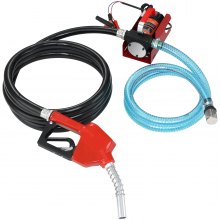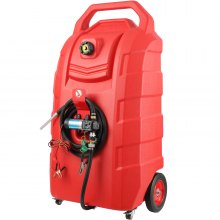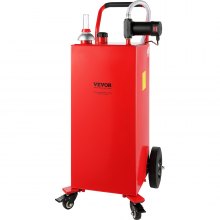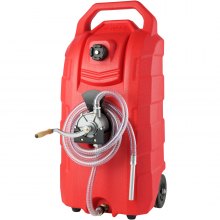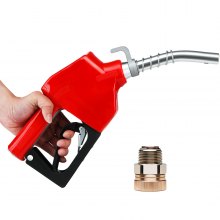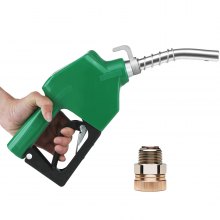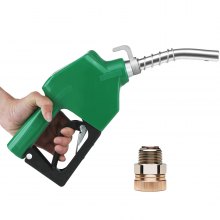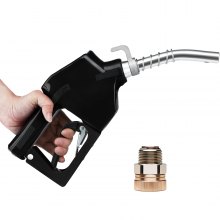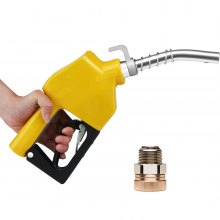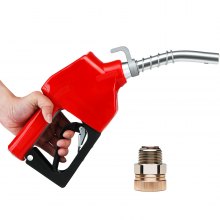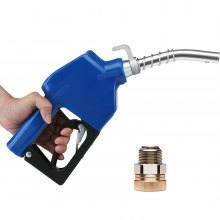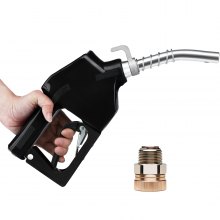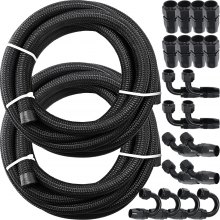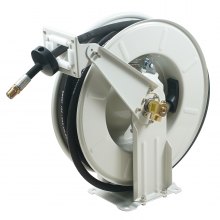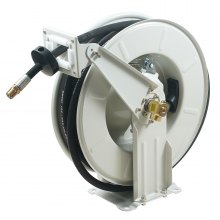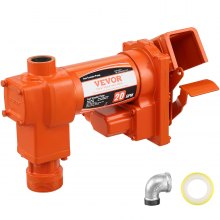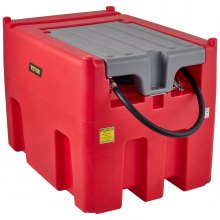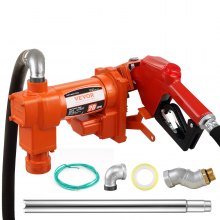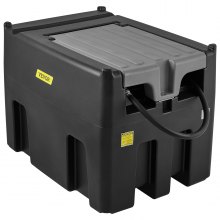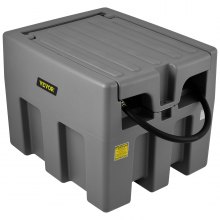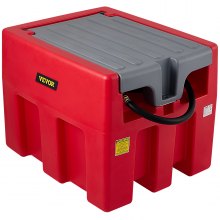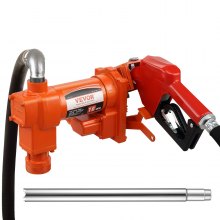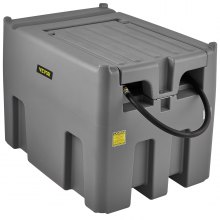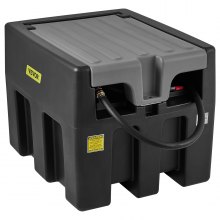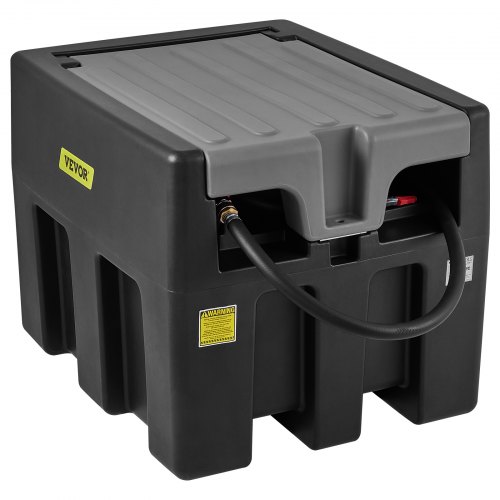Fuel Storage Solutions: Safeguarding Your Resources
Introduction to Fuel Storage Essentials
Navigating the world of fuel storage can be complex, yet it's crucial for those needing to store fuel for various purposes. Whether it's for industrial use, emergency backup, or routine operations, understanding the fundamentals of fuel storage is vital. This article dives into the various aspects of fuel storage, offering insights and tips for effective and safe fuel handling.
Understanding Fuel Storage Needs
Before delving into storage solutions, it's important to recognize your specific fuel storage needs. Factors like the type of fuel, storage duration, and quantity significantly influence the choice of storage solution. Identifying these factors early on ensures that you select a storage method that aligns with your requirements.
The Importance of Choosing the Right Fuel Containers
Selecting the appropriate fuel container is paramount for safety and efficiency. Containers vary in material, size, and design, each suited for different types of fuel and storage conditions. We'll explore the options and help you find the perfect match for your fuel storage needs.
Steel vs. Plastic Containers: Making the Informed Choice
Steel and plastic containers each have their unique advantages. Steel is known for its durability and security, while plastic offers lightweight convenience and corrosion resistance. Weighing these benefits against your specific needs is key to choosing the right container.
Bulk Storage Tanks: For Large Scale Needs
For those requiring storage of large fuel quantities, bulk storage tanks are the ideal solution. Available in various sizes and designs, these tanks are perfect for long-term storage and offer easy access for refueling operations.
Safe Fuel Handling and Maintenance Practices
Storing fuel safely is as important as choosing the right storage solution. This section outlines best practices for handling fuel, including safe transfer methods, regular maintenance routines, and safety measures to prevent accidents.
Preventing Contamination and Leakages
Contamination and leakages not only waste fuel but also pose significant environmental and safety risks. We provide tips on preventing these issues, from regular inspections to using high-quality fittings and seals.
Regular Tank Cleaning and Inspection
Regular cleaning and inspection of your fuel storage tanks are crucial for maintaining fuel quality and tank integrity. This segment guides you through the process, highlighting key areas to focus on during inspections.
Compliance and Environmental Considerations
Adhering to regulatory standards and environmental considerations is non-negotiable in fuel storage. This section covers the legal requirements and eco-friendly practices you should be aware of to ensure compliance and minimize environmental impact.
Navigating Local and Federal Regulations
Understanding and complying with local and federal regulations is essential. We'll help you navigate these requirements, ensuring that your fuel storage practices are up to code.
Eco-Friendly Storage Solutions
Incorporating eco-friendly practices into your fuel storage strategy not only benefits the environment but can also enhance your operation's efficiency. We explore green solutions and how they can be integrated into your fuel storage setup.
Innovative Fuel Storage Technologies
The fuel storage industry is constantly evolving, with new technologies emerging to enhance safety, efficiency, and environmental friendliness. Discover the latest innovations in fuel storage and how they can benefit your operations.
Cutting-Edge Materials and Designs
From advanced materials that offer superior durability to innovative designs that optimize space and safety, the latest advancements in fuel storage are transforming the industry. We delve into these developments and their implications.
Smart Monitoring Systems
Smart monitoring systems revolutionize how fuel levels and tank conditions are tracked. Learn about these systems and how they can streamline your fuel management process, ensuring optimal storage conditions and timely refueling.
Maximizing Fuel Shelf Life
Proper storage is key to preserving fuel quality over time. This section offers expert advice on maximizing fuel shelf life, from choosing the right additives to optimal storage conditions.
Choosing the Right Fuel Additives
Fuel additives play a crucial role in maintaining fuel quality. We guide you through the different types of additives available and how they can help preserve your fuel during extended storage periods.
Optimal Storage Conditions for Longevity
Temperature, humidity, and container material all impact fuel shelf life. Understanding and maintaining optimal storage conditions is essential for keeping your fuel in top condition.
Tailoring Solutions to Different Types of Fuel
Different fuels have unique storage requirements. We break down the storage considerations for common fuels like gasoline, diesel, and kerosene, providing tailored advice for each.
Gasoline Storage Guidelines
Gasoline is highly volatile and requires specific storage conditions. We provide detailed guidelines on safely storing gasoline, from container selection to handling procedures.
Diesel and Kerosene: Long-Term Storage Tips
Diesel and kerosene have different storage properties compared to gasoline. This section focuses on the best practices for long-term storage of these fuels, ensuring quality and safety.
VEVOR: Your Partner in Reliable Fuel Storage
VEVOR offers a range of fuel storage solutions tailored to meet diverse needs. Whether you're looking for robust containers, advanced monitoring systems, or eco-friendly options, VEVOR has the expertise and products to ensure your fuel storage is safe, efficient, and compliant.
Explore VEVOR's Innovative Fuel Storage Solutions
Discover the breadth of VEVOR's offerings, from cutting-edge containers to smart monitoring technologies. We showcase how VEVOR's products can enhance your fuel storage experience, providing reliability and peace of mind.
Why Choose VEVOR for Your Fuel Storage Needs
VEVOR stands out for its commitment to quality, safety, and environmental responsibility. Learn why VEVOR is the preferred choice for professionals seeking dependable fuel storage solutions.
Conclusion: Fueling Your Success with Smart Storage
Effective fuel storage is a critical component of many operations. By choosing the right solutions, adhering to safety practices, and staying informed about industry developments, you can ensure that your fuel storage contributes to the success and efficiency of your endeavors.
Take the Next Step with VEVOR
Ready to elevate your fuel storage strategy? Explore VEVOR's range of products and services, and take the first step towards a more efficient, safe, and compliant fuel storage system. Contact us today to find the perfect solution for your needs.
FAQs about Fuel Storage
What Are the Best Practices for Safe Fuel Storage?
Ensuring safe fuel storage involves a combination of using the right containers, proper placement, and adherence to safety regulations. It's crucial to use containers designed specifically for the type of fuel you're storing. For example, gasoline should be stored in containers with flame arrestors. The storage area should be well-ventilated, away from direct sunlight, and at a safe distance from any sources of heat or ignition. Additionally, it's important to regularly check for leaks or damage and to adhere to local and federal regulations regarding fuel storage to prevent accidents and environmental hazards.
How Long Can You Store Fuel Without It Going Bad?
The shelf life of stored fuel can vary greatly depending on the type of fuel and the storage conditions. Generally, gasoline can be stored for up to 3-6 months, diesel for 6-12 months, and kerosene for up to 1-2 years under optimal conditions. These durations can be extended with the use of stabilizers, which prevent the fuel from oxidizing and degrading. Proper storage conditions, such as keeping the fuel in a cool, dry place and in a tightly sealed container, are essential to maximize its shelf life.
Are There Any Special Requirements for Storing Large Quantities of Fuel?
Storing large quantities of fuel requires additional considerations for safety and compliance with regulations. Large storage tanks must be constructed and maintained according to specific industry standards and often require secondary containment to prevent spills. Regular inspections are necessary to ensure the integrity of the tanks. Additionally, local and federal regulations may require specific permits and adherence to environmental protection standards. It's also important to have a spill response plan in place and ensure that all personnel handling the fuel are adequately trained in safety procedures.
What Is the Environmental Impact of Fuel Storage, and How Can It Be Minimized?
Fuel storage can have significant environmental impacts, particularly in the case of leaks or spills. These can contaminate soil and water, harm wildlife, and pose health risks. To minimize these impacts, it's essential to use leak-proof containers and tanks, implement regular inspections, and have effective spill containment measures in place. Using eco-friendly fuel storage solutions, such as double-walled tanks or biodegradable fuels, can also reduce environmental risks. Proper disposal of old fuel and adherence to environmental regulations are crucial steps in minimizing the environmental footprint of fuel storage.
Can Different Types of Fuel Be Stored Together?
It's generally not advisable to store different types of fuel together due to varying chemical compositions and storage requirements. Mixing fuels can lead to contamination, reduced effectiveness, and increased safety hazards. Each type of fuel has specific storage guidelines regarding the material of the container, storage conditions, and safety measures. For instance, gasoline requires different handling and storage conditions than diesel. It's best to store each fuel type in its dedicated container and follow the specific guidelines for that fuel to ensure safety and maintain quality.




























